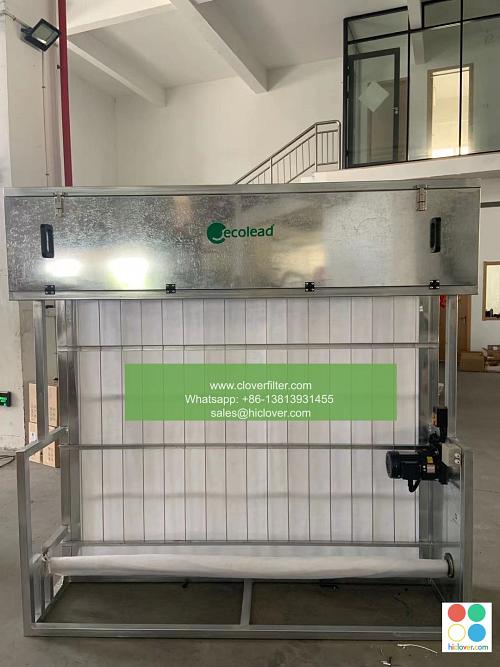Improving Indoor Air Quality in NIH Research Buildings with Automatic Roll Air Filters

The National Institutes of Health (NIH) is dedicated to improving human health through biomedical research. However, indoor air quality (IAQ) in research buildings can be a significant concern, as it can impact the health and productivity of researchers, as well as the accuracy of research results. One effective solution to improve IAQ is the use of automatic roll air filters. In this article, we will explore the benefits of using automatic roll air filters in NIH research buildings and highlight various application areas.
Importance of Indoor Air Quality in Research Buildings
Indoor air quality is crucial in research buildings, as it can affect the health and well-being of researchers, laboratory personnel, and animal care staff. Poor IAQ can lead to respiratory problems, allergies, and asthma, which can decrease productivity and increase absenteeism. Furthermore, poor IAQ can also impact the accuracy of research results, as contaminated air can affect the integrity of samples and experimental data.
Benefits of Automatic Roll Air Filters
Automatic roll air filters are a cost-effective and efficient solution to improve IAQ in research buildings. These filters use a continuous roll of filter media that is automatically advanced as it becomes dirty, eliminating the need for manual filter changes. The benefits of automatic roll air filters include:
- Improved air quality: Automatic roll air filters can capture 99.97% of particles as small as 0.3 microns, including dust, pollen, bacteria, and viruses.
- Increased efficiency: Automatic roll air filters can operate continuously, without the need for downtime or manual maintenance.
- Reduced costs: Automatic roll air filters can save energy and maintenance costs by reducing the need for filter replacements and duct cleaning.
-
Laboratories
: Automatic roll air filters can improve IAQ in **laboratories**, where **hazardous chemicals** and **biological agents** are used.
-
Animal Care Facilities
: Automatic roll air filters can improve IAQ in **animal care facilities**, where **animal dander** and **allergens** can be present.
-
Medical Facilities
: Automatic roll air filters can improve IAQ in **medical facilities**, where **infectious diseases** can be present.
-
Office Spaces
: Automatic roll air filters can improve IAQ in **office spaces**, where **occupant health** and **productivity** are important.
Application Areas in NIH Research Buildings
Automatic roll air filters can be applied in various areas of NIH research buildings, including:
Conclusion
Improving indoor air quality in NIH research buildings is crucial for the health and productivity of researchers, as well as the accuracy of research results. Automatic roll air filters are a cost-effective and efficient solution to improve IAQ, with benefits including improved air quality, increased efficiency, and reduced costs. By applying automatic roll air filters in various areas of NIH research buildings, including laboratories, animal care facilities, medical facilities, and office spaces, we can create a healthier and more productive environment for researchers and support staff.
Key words: Indoor Air Quality (IAQ), National Institutes of Health (NIH), Research Buildings, Automatic Roll Air Filters, Laboratory Personnel, Animal Care Staff, Respiratory Problems, Allergies, Asthma, Contaminated Air, Integrity of Samples, Experimental Data.

